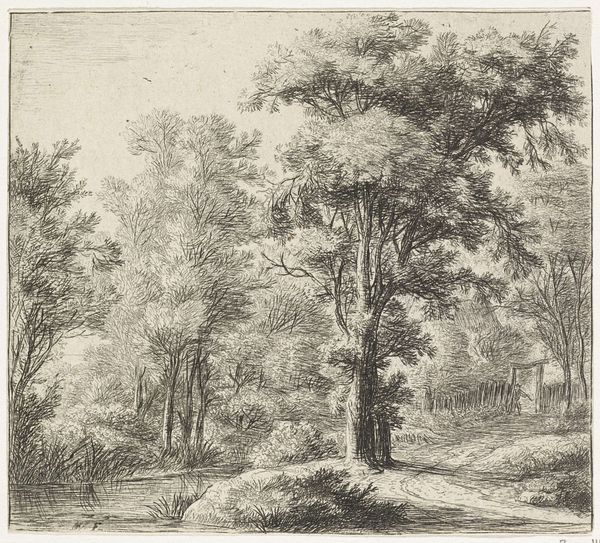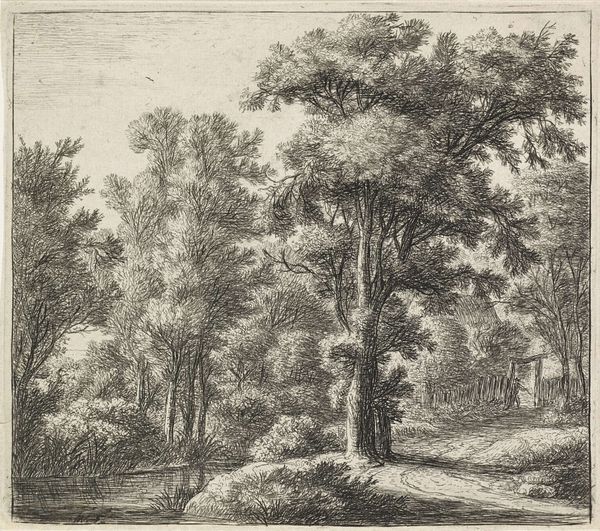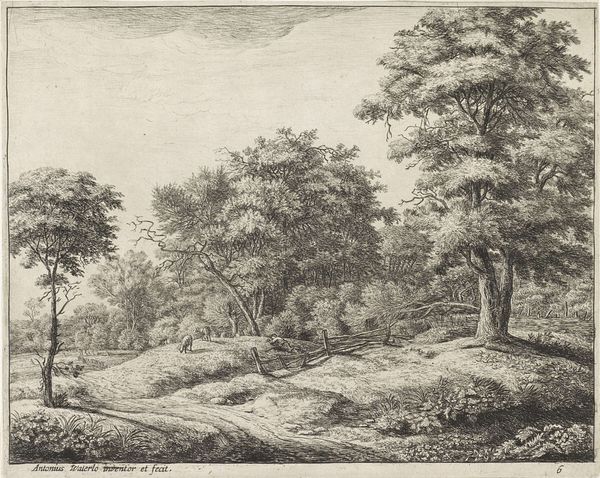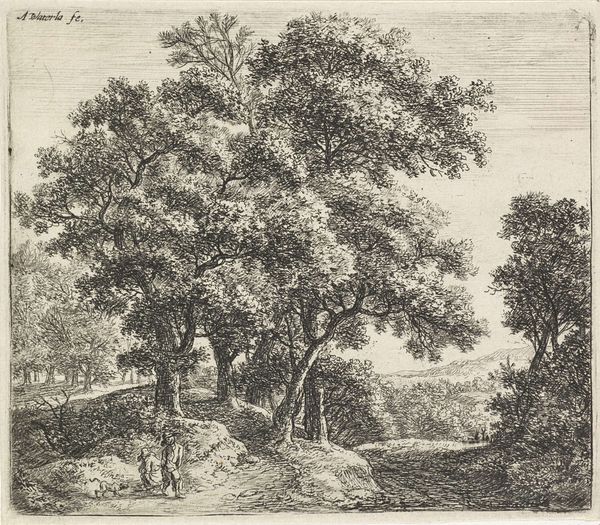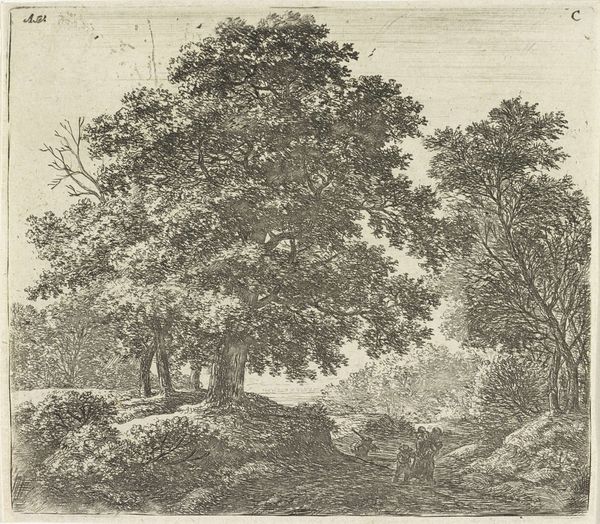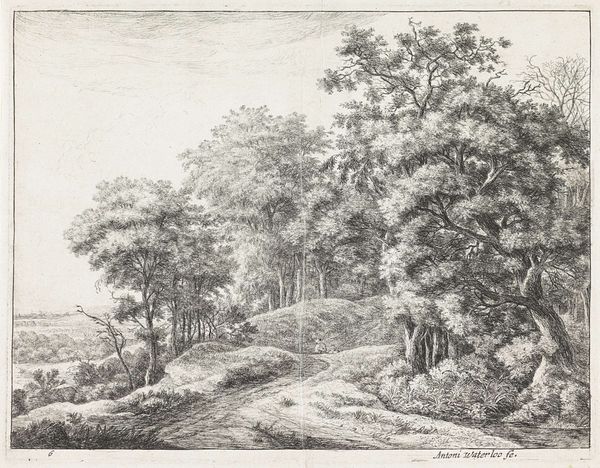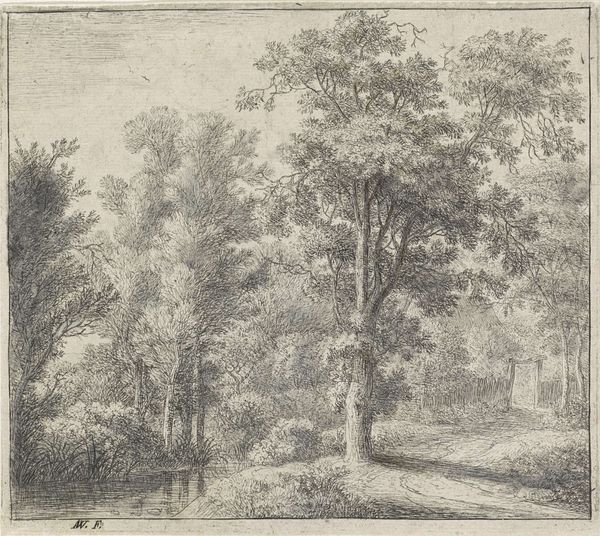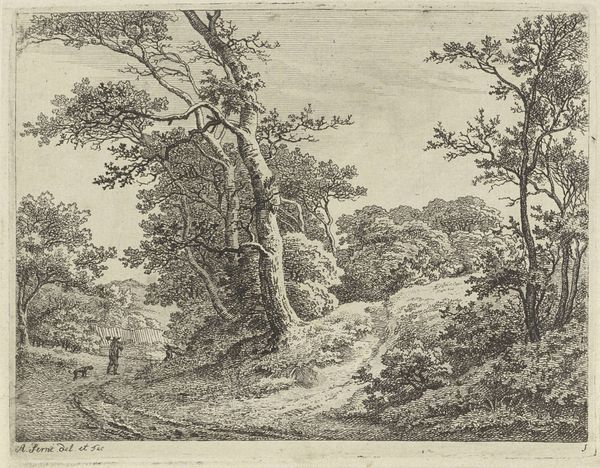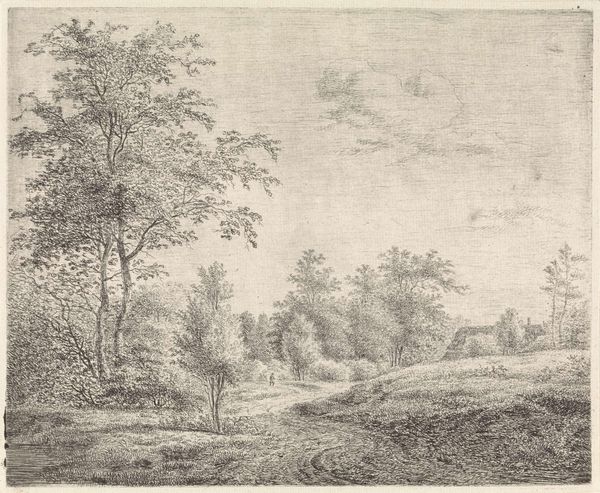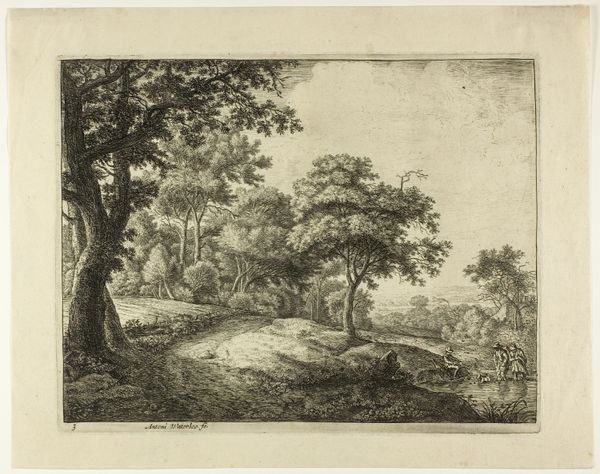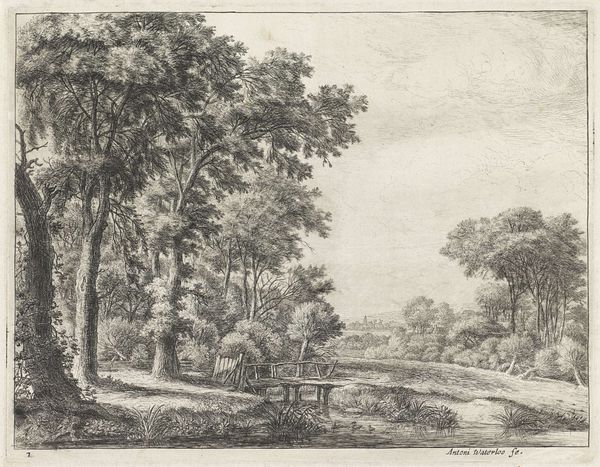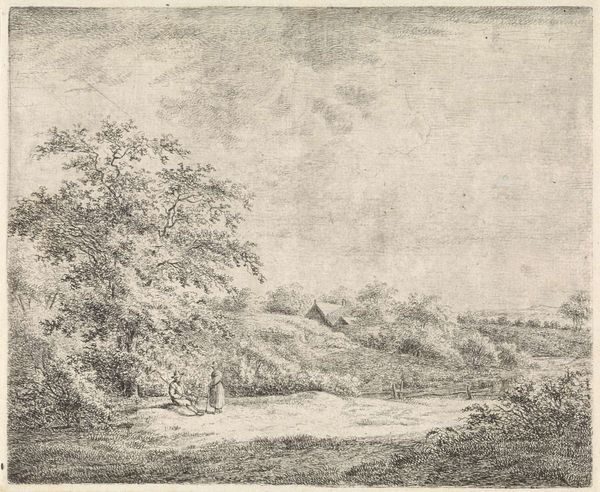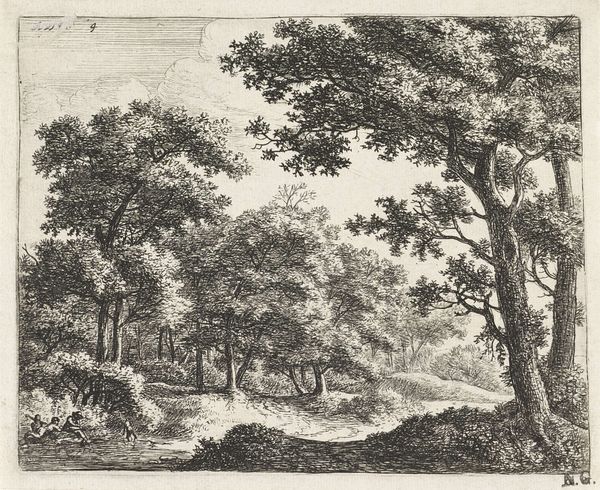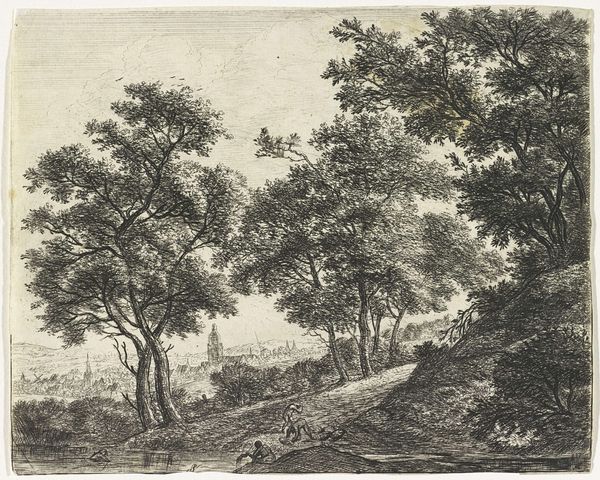
drawing, etching
#
drawing
#
baroque
#
dutch-golden-age
#
etching
#
landscape
#
figuration
#
realism
Dimensions: height 222 mm, width 286 mm
Copyright: Rijks Museum: Open Domain
Editor: This etching, "Two Figures Wading Through a Stream," attributed to Anthonie Waterloo, is part of the Rijksmuseum collection. It’s so detailed for such a small piece. I’m immediately struck by the vastness of the landscape despite its intimacy. What stands out to you? Curator: I'm drawn to the romantic idealization of nature. Waterloo created this piece during the Dutch Golden Age, a time of immense national pride and prosperity. Notice how this otherwise commonplace activity, simply crossing a stream, is elevated to something almost noble? Consider the growing urban centers during this period; landscapes like these served as visual reminders of a rural past and idealized connection to the land. Editor: So, the image taps into a collective nostalgia, a longing for a simpler way of life? But, aren’t those figures presented more like a decorative element of the image than as the subject of the composition itself? Curator: Exactly! And consider who would have consumed these images. Urban elites were amassing wealth and seeking to legitimize their status. Landscape prints like this weren't merely decorations. They represented ownership, control, and a particular vision of the Dutch identity that could be widely disseminated through printmaking. They are participating, in a sense, to shaping Dutch national identity by defining what it means to be "Dutch." Do you see this political undertone reflected in the technique as well? Editor: The controlled lines of the etching create a sense of order. That’s interesting, now that you mention the intended audience… it gives the image another layer of depth! It's more than just a pretty landscape. Curator: Precisely! It reveals how art serves ideological purposes. Think about how imagery continues to operate similarly today. Editor: Wow, I had never considered how this picturesque scene could be connected to politics. It really emphasizes the role art plays in reflecting and shaping society's values.
Comments
No comments
Be the first to comment and join the conversation on the ultimate creative platform.
